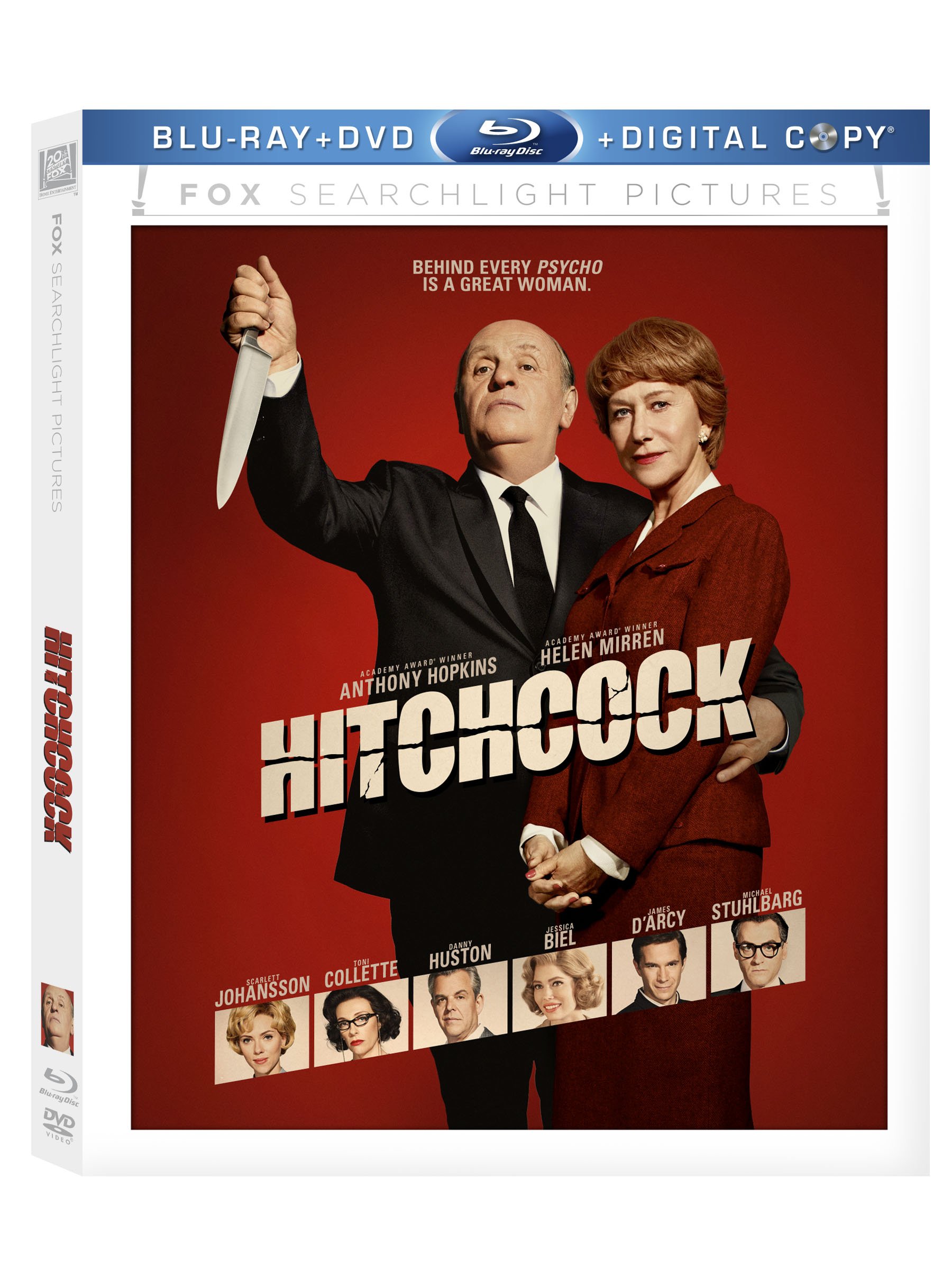
Throughout his 50-year career, Alfred Hitchcock directed more than 50 films—unforgettable classics like .nightsandweekends.com/articles/12/NW1200046.php>Rebecca and Rear Window and, of course, Psycho. But, as director Sacha Gervasi’s biopic, Hitchcock, suggests, the legendary director had more than a little bit of help from his no-nonsense wife.
Hitchcock catches up with the legendary director (played by Anthony Hopkins) in 1959, following the overwhelming success of North by Northwest. Eager to get started on a new project—something different, to prove that he’s not past his prime—he becomes obsessed with a grisly novel called Psycho. Everyone else has already passed on the project, convinced that it’s too gruesome for the big screen—but that only makes it a bigger challenge for the determined director.
Meanwhile, as Hitch becomes engrossed in his latest project, his wife and frequent collaborator, Alma (Helen Mirren), begins working on a project of her own with a handsome old friend, creating tension in their marriage.
Though Hitchcock takes place during the making of Psycho, the movie isn’t really about the making of Psycho. Instead, it focuses less on the filmmaking process and more on the relationships—between the director and his leading ladies, between Alma and Whitfield Cook (Danny Huston), and especially between Hitch and Alma.
The award season buzz surrounding Hopkins is well-deserved. He successfully transforms himself into the iconic director, recreating everything from his mannerisms to his dry sense of humor. Considering the high-profile character’s quirks, though, it’s impossible to mimic his voice and his facial expressions without sometimes making it feel more like a really good impersonation than an award-worthy performance.
Mirren, on the other hand, is free to make her character feel more human and less cartoonish—and, for that reason, she often steals the show. Her Alma is a strong, outspoken, take-charge kind of woman who has no patience for self-pity or any other kind of drama—and that makes her the perfect match for the straight-faced, often melancholy director.
While the relationship is an interesting one, though, there are so many fascinating things going on in the background—and Hitchcock simply glosses over most of them. While I have no doubt that Hitchcock’s relationship with Alma was a crucial one, the romance isn’t nearly as captivating as the business details—like the meetings with studio heads and censors, the on-set action, the test screenings, and more. It feels like such a missed opportunity to focus on a rather run-of-the-mill love story instead of offering audiences a closer look behind the scenes of this truly iconic film.
Still, the film does offer a few glimpses of Hitchcock’s filmmaking process. And, fortunately, the relationship between Hitch and Alma is a lively one—one that also provides a little more insight into Hitchcock’s life and career. So while Hitchcock isn’t exactly the dishy, behind-the-scenes tell-all that fans might be hoping for, it’s still an entertaining look at the life of one of Hollywood’s most notorious directors.
Listen to the review on Reel Discovery:


